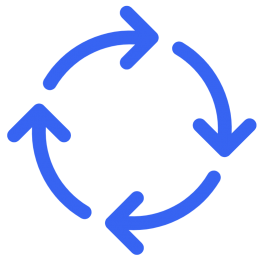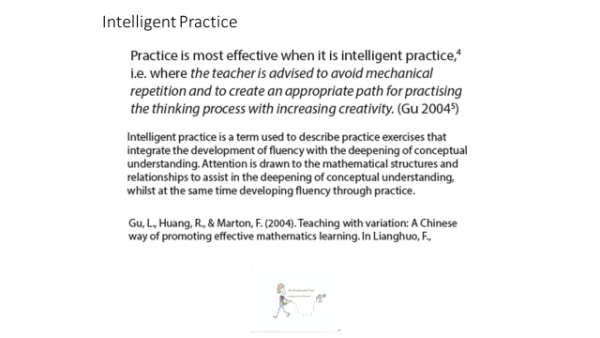Maths

Vision
We use maths in every aspect of our lives, at work and in practical everyday activities at home and beyond. We use maths when we go shopping, plan a holiday, decide on a mortgage or decorate a room. Good numeracy is essential for parents to help their children learn, as patients understanding health information, as citizens making sense of statistics and economic news. Decisions in life are often based on numerical information. By ensuring children acquire appropriate maths skills and can reason and problem solve, we are increasing their future chances of employment, wealth, social & emotional & physical health and reducing the likelihood of school exclusions, truancy and being involved in crime. (See Appendix 1.)
When teaching Maths, Moss Hall Schools have chosen to follow the White Rose Maths and Power Maths programmes, as they are based on the Singapore approach (i.e. CPA & metacognition, reasoning and problem-solving and Intelligent Practice (See Appendix 4) & cleverly designed questions) and is recommended by Maths Hubs and NCTEM.
White Rose aligns with our preferred pedagogical approach of direct instruction, with quality modelling, worked examples and opportunities for practice and the deepening of learning while also reducing cognitive load. We use an I do, We do, You do approach to most maths lessons in order to guide and support children’s practice towards independence.
In accordance with the statutory requirements of the maths national curriculum for KS1 and KS2 and the EYFS curriculum content , we want children to develop their conceptual understanding, be fluent, reason and be able to solve routine and non-routine problems. To support this we have invested heavily in manipulatives that enable all children to explore and explain the abstract nature of maths. We also encourage drawings, including the use of bar models. This concrete, pictorial and abstract approach, underpinned by Bruner’s research (CPA) is proven to be a very effective way of supporting mastery and helping children to know and understand more and remember more in the long term. It encourages children to make links between concepts while deepening their understanding of mathematical thinking and the different representations for problem solving.
Our curriculum, inspired by the principles of mastery, often involves whole-class teaching with all pupils being taught the same concepts at the same time (See NCETM’s information on Mastery). Adaptations to learning (differentiation) across our schools are therefore not necessarily a 3-way approach. Instead, adaptations may be achieved through careful questioning, additional scaffolding (e.g. sentence stems, worked examples), the length of time resources are used and peer support. Those children who are slower to grasp content will also be supported by immediate intervention. Similarly, those children who grasp concepts more rapidly and have demonstrated mastery will be given deeper, rich opportunities to practice and apply understanding through the use of extended questions, sourced from NRICH, White Rose and Power Maths rather than acceleration into content from future years. (See Appendix 2.)
Please note that since we are aware of the damage that labelling and streaming can cause, the terms less able and more able should be avoided. The terminology used in our assessment of Working Towards, Working At Expected and Working at Greater Depth is preferable. (See Appendix 3)
Assessment in KS1 & KS2 includes immediate feedback from the teacher either through verbal feedback or in a purple pen and where relevant, for instance, multiple errors in their workbook, children’s subsequent response with a green pen. This formative assessment is used to plan subsequent teaching and learning. The use of flashbacks and quizzing ensures regular and ongoing assessment that feeds into planning.
The use of termly NFER tests gives us a standardised outcome that enables us to evaluate impact and diagnose domains of mathematics that require further teaching.
 CPD
CPD
We realise the importance of CPD and ensure that teachers’ subject knowledge and pedagogical approaches are up to date through a programme of staff meetings & insets. Staff also attend identified courses that meet their individual needs. We also seek the advice, guidance and support of a Primary Maths Consultant when necessary.
‘‘Continuing professional learning and development are central to the success of any school’’. Early & Porritt 2010

Mastery
At Moss Hall, we aim for our children to gain a deep, long-term, secure and adaptable understanding. We ensure our children acquire a solid understanding before moving on to more advanced material.
We follow NCETM’s five big ideas in teaching for mastery: coherence; representation and structure; mathematical thinking; fluency; and variation.

Coherence
At Moss Hall we…
- break lessons down into small connected steps gradually unfolding a concept over time
- spend longer and go deeper into mathematical concepts
- ask our children to apply the concept to a range of contexts.
- encourage our children to generalise concepts:
- transfer what they have learnt from one example to another
- notice the similarities and differences and identify concepts underlying mathematical structure

Representation and structure
At Moss Hall we…
- use concrete, pictorial, and abstract representations of concepts to highlight a key difficulty point.
- use representations to show the structure of numbers.
- use stem sentences to describe representations.
- expect children to eventually be able to do the maths without the representation.

Mathematical thinking
At Moss Hall we…
- use high-quality questions and prompts to develop children’s reasoning and get them to think like mathematicians
- give children the opportunities to develop mathematical ‘habits of mind’ – to be systematic, generalise, seek out patterns, to classify, to generate their own examples
- teach mathematical thinking concepts and refer to them by name
- give unambiguous and specific praise to children when solving problems

Fluency
At Moss Hall we...
- share strategies for solving problems and examine them. Children are encouraged to explain and justify their solution strategies.
- use counting sticks and chanting to develop fluency in times tables
- expect children to practice at home - in their home learning practice books, on TT Rockstars and on Century Tech (in the Juniors)
- we provide regular low-stakes quizzes and tests of times tables and arithmetic
- develop quick and efficient recall of facts and procedures. With this, children have the flexibility to move between different contexts and representations of mathematics

Variation
At Moss Hall we...
- have a concrete, pictorial, abstract approach. This involves moving from concrete materials to pictorial representations, to abstract symbols and problems
- teach concepts often in more than one way, drawing attention to critical aspects and developing deep understanding
- carefully sequence the small steps, questions, activities and exercises used within a lesson and follow-up practice. We pay attention to what is kept the same and what changes, to connect the mathematics and draw attention to mathematical relationships and structure

